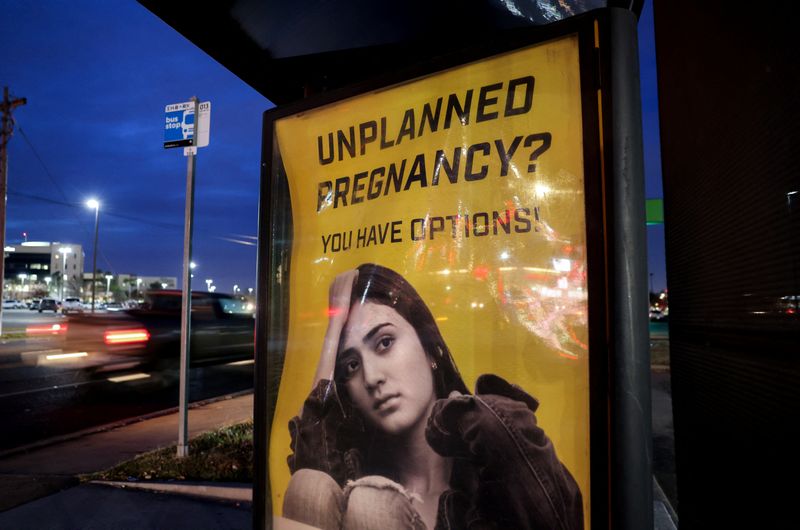By Gabriella Borter
(Reuters) - As the U.S. Supreme Court this year weighs a rollback in nationwide protections for abortion in place since 1973, conservative states are enacting new limits while liberal states seek to protect and expand abortion rights.
ABORTION RESTRICTIONS
ARIZONA: Republican Governor Doug Ducey in March signed a bill banning abortions after 15 weeks of pregnancy. The measure makes exceptions for medical emergencies, but not for rape or incest. It will take effect later this year if not blocked in court.
FLORIDA: Republican Governor Ron DeSantis in April signed a 15-week abortion ban, which allows exceptions for medical emergencies or if the fetus has a fatal abnormality. The exceptions do not allow for abortion past 15 weeks in case of rape, incest or human trafficking. The ban is due to take effect on July 1.
IDAHO: Republican Governor Brad Little signed a six-week abortion ban in March that allows family members of the fetus to sue providers who perform abortions past that point, similar to a Texas law enacted last year. The Idaho law was due to take effect in April, but has been blocked by the state Supreme Court pending legal review.
KENTUCKY: The legislature in April overrode Democratic Governor Andy Beshear's veto to enact several abortion restrictions, including a 15-week ban, a requirement that fetal remains be cremated or interred, and a requirement that a combination birth-death or stillbirth certificate be issued for each abortion. The law took immediate effect, suspending clinics' ability to provide abortions for eight days until a U.S. judge temporarily blocked its enforcement.
OKLAHOMA: The Senate on Thursday passed a ban on all abortions except in cases of medical emergency, rape or incest. It relies on private citizens to sue providers and any person who "aids or abets" abortions to be enforced. The House must approve the Senate's amendments before it heads to Republican Governor Kevin Stitt for signing. With the governor's approval, it would take effect immediately.
Also on Thursday, Oklahoma's House of Representatives approved a ban on abortions after six weeks of pregnancy, which relies on the same lawsuit enforcement mechanism. It will take immediate effect if signed by Stitt.
Stitt already signed a bill in April banning abortion except in medical emergencies and penalizing providers who violate the law with up to $100,000 in fines and 10 years in prison. The law is due to take effect in August if not blocked in court.
SOUTH DAKOTA: Republican Governor Kristi Noem signed a bill in March requiring women to make three in-person doctor's visits to complete a medication abortion. The legislation's implementation depends on the outcome of a federal court case.
ABORTION PROTECTIONS
COLORADO: Governor Jared Polis, a Democrat, signed a bill on April 4 codifying the right to have an abortion. The measure immediately took effect.

MARYLAND: The legislature passed a bill that expands the definition of who can provide abortions to include any "qualified provider," establishes a state-funded abortion provider training program and requires most insurance plans to cover the cost of abortions. Republican Governor Larry Hogan vetoed the bill, but the state's Democratic-controlled legislature overrode his veto on April 9 and the law is due to take effect July 1.
VERMONT: The Democratic-led legislature in February passed a constitutional amendment that guarantees the right to abortion. It will be on the ballot for voters to approve in November.